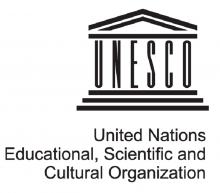Eye on UNESCO

The United Nations Educational, Scientific and Cultural Organization is a specialized agency of the United Nations. Last May, UNESCO convened the World Education Forum of 2015 in Incheon, Korea to develop a global consensus on how best to achieve “inclusive and equitable quality education and lifelong learning for all” by 2030. The meeting included ministers, heads of agencies and officials of multilateral and bilateral organizations, and representatives of civil society, the teaching profession, youth and the private sector. UNICEF, the World Bank, UNFPA, UNDP, UN Women and UNHCR also served as the co-convenors of this critical world forum.
Accordingly, the Forum published a statement and declared,
“Our vision is to transform lives through education, recognizing the important role of education as a main driver of development and in achieving the other proposed SDGs. We commit with a sense of urgency to a single, renewed education agenda that is holistic, ambitious and aspirational, leaving no one behind. This new vision is fully captured by the proposed SDG 4 [Sustainable Development Goals]… We reaffirm that education is a public good, a fundamental human right and a basis for guaranteeing the realization of other rights. It is essential for peace, tolerance, human fulfilment and sustainable development. We recognize education as key to achieving full employment and poverty eradication. We will focus our efforts on access, equity and inclusion, quality and learning outcomes, within a lifelong learning approach.”
Paragraph 17 of the declaration recognizes UNESCO as the leader of the 2030 education agenda, responsible for convening global, regional and national stakeholders to guide the implementation of the agenda.
The ESCW Coordinating Committee is fully committed to engaging this process to ensure that educational support and cultural workers labor rights are recognized as a critical link in the chain of delivering quality public education to all citizens. Stay tuned!

